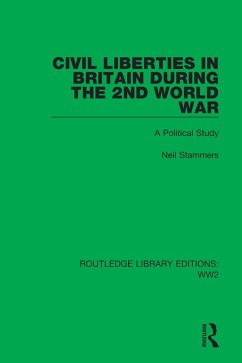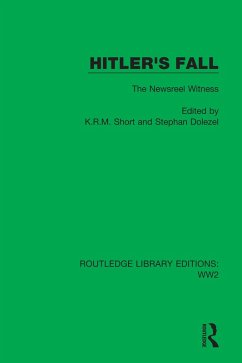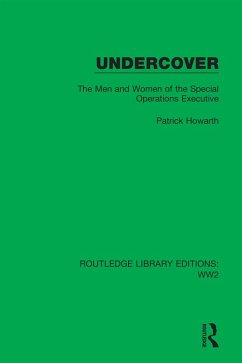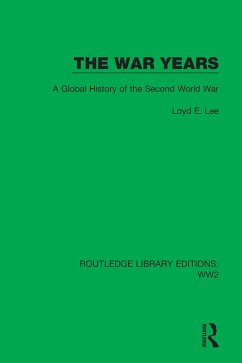
Civil Liberties in Britain During the 2nd World War (eBook, PDF)
A Political Study
Versandkostenfrei!
Sofort per Download lieferbar
31,95 €
inkl. MwSt.
Weitere Ausgaben:

PAYBACK Punkte
16 °P sammeln!
War and such crises are seen as aberrations in the history and development of democracy - a time when otherwise unacceptable constraints can be imposed on the ordinary man with little or no dissent. The reasoning behind this is questioned in this book, first published in 1983. It makes a detailed study of government policy towards civil liberties in Britain during the Second World War, the nature of crisis government and its implications for democracy. Drawing on government documents and other primary sources, the book examines policies implemented, such as the Emergency Powers (Defence) Act o...
War and such crises are seen as aberrations in the history and development of democracy - a time when otherwise unacceptable constraints can be imposed on the ordinary man with little or no dissent. The reasoning behind this is questioned in this book, first published in 1983. It makes a detailed study of government policy towards civil liberties in Britain during the Second World War, the nature of crisis government and its implications for democracy. Drawing on government documents and other primary sources, the book examines policies implemented, such as the Emergency Powers (Defence) Act of 1939 and Regulation 18B. Other government policies such as the internment of enemy aliens, restrictions on the media and the mobilisation of propaganda for the war effort are analysed thoroughly.
Dieser Download kann aus rechtlichen Gründen nur mit Rechnungsadresse in A, B, BG, CY, CZ, D, DK, EW, E, FIN, F, GR, HR, H, IRL, I, LT, L, LR, M, NL, PL, P, R, S, SLO, SK ausgeliefert werden.













